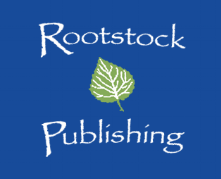Horodno Burning Reviewed by Historical Novel Society
Horodno Burning
WRITTEN BY MICHAEL FREED-THALL
REVIEW BY B. J. SEDLOCK
With the world’s eyes on the conflict in Ukraine, historical fiction set in Eastern Europe may see an increased demand. This novel would be an excellent choice. It centers around the author’s great-great-grandparents, Estes Leving and Bernard Garfinkle, who live in Horodno (present-day Grodno in Belarus). It follows their lives in the Pale of Settlement as children starting in 1860 and concludes in the 20th century.
Estes is hampered by a deformed foot, and Bernard is what today would be called dyslexic. Bernard gets classmates to help cover for his deficiency in shul. As there is a lack of schooling for girls in their culture, Estes reads widely, teaches herself several languages, and finds a tutor. Once Bernard leaves shul, he works in the family’s vodka distillery. Estes becomes something of a feminist, objecting to her religion’s subjection of women, and refuses to go to services. Bernard must be persistent when courting Estes, finally winning her over when he teaches her to play chess. The woman scholar and nearly illiterate man marry and are soon blessed with twins.
Estes runs a bookshop while Bernard sells vodka, but her association with revolutionary lands the couple in trouble. Russian officials confiscate “objectionable” books. Bernard experiences a pogrom when he goes to Balta to rescue a relative’s family. Then Estes gets called into the local Russian commander’s office, where he pressures her via an indecent proposal to name names of her friend’s revolutionary associates.
Freed-Thall is successful in turning ancestors he never met into interesting, well-rounded characters, with a memorable romance. Daily life in the Pale and the horrors of persecution against Jewish residents will stay with the reader long afterwards. The author’s research is excellent; he provides a glossary, a Pale timeline, and a bibliography for further reading. Highly recommended.
Reviewed in The Historical Novels Review, Issue 101, August 2022.

